MercoPress. South Atlantic News Agency
Tag: economy
-
Friday, December 29th 2017 - 09:32 UTC
Argentina increases inflation targets for 2018/19, closer to private estimates
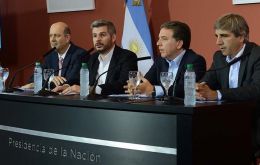
Argentina changed its inflation target for 2018 to 15%, up from the central bank’s previous goal of 8-12%, Treasury Minister Nicolas Dujovne said on Thursday, raising expectations for interest rate cuts. The government will postpone by one year its goal of lowering inflation to 5%, pushing it back to 2020, Dujovne said.
-
Thursday, December 28th 2017 - 10:30 UTC
Argentine Senate approves tax reform and 2018 budget; economy expanded 0.2% in October
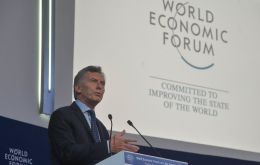
Argentina’s Senate on Wednesday gave final approval to the government’s tax reform and 2018 budget plan, part of President Mauricio Macri’s push to cut business costs and attract investment to Latin America’s No. 3 economy.
-
Thursday, December 28th 2017 - 09:59 UTC
Parliament demands release of studies on potential impact of Brexit on the economy
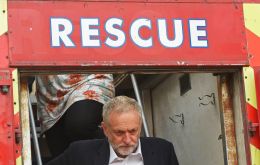
The United Kingdom government is facing new calls to release confidential studies drawn up by officials looking at the potential impact of Brexit on the economy. Twenty-five Labour MPs have written to Chancellor Philip Hammond calling on him to release the material after he disclosed the work was being carried out during a recent session of the Commons Treasury Committee.
-
Thursday, December 28th 2017 - 09:44 UTC
Latin America has started to look seriously at Indian economy and opportunities By R. Viswanathan
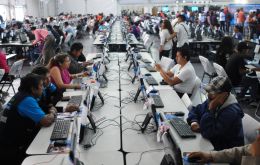
Latin America's GDP growth is projected to increase to 2.2% in 2018 from 1.3% in 2017. The Pink Tide has receded for the moment, giving rise to more centre right governments in the region. In 2018, Brazil, Mexico, Colombia, Costa Rica, Paraguay and Venezuela will have presidential elections. Venezuela’s political and economic tragedy could get worse.
-
Wednesday, December 27th 2017 - 09:52 UTC
US poverty rate down; but top 5% of families accounted for more than one fifth of total income in 2016

A stronger US economy lifted American household incomes in 2016 and drove the poverty rate down to the level seen before the financial crisis. The median household income increased by 3.2% to US$59,039, rising for a second consecutive year as more people found full time jobs.
-
Wednesday, December 27th 2017 - 09:36 UTC
Moody's expects Argentine economic recovery in 2018 and 2019
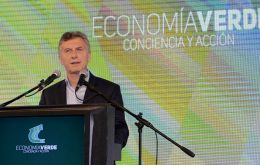
Credit risk rating agency Moody's expects Argentina's economic recovery to continue in 2018 and 2019, helped by the reforms advanced by the Mauricio Macri's administration in the last two years.
-
Friday, February 3rd 2012 - 18:14 UTC
Uruguay inflation up 0.74% in January and 8.05% in the last twelve months

Uruguay's inflation rate rose in January 0.74% from December as housing, hotel and restaurant prices jumped, the national statistics agency, INE, reported this week. The consumer price index rose 8.05% on the year at the end of January, INE said.
-
Wednesday, February 1st 2012 - 06:24 UTC
Brazil’s December industrial production brings hope after a dismal 0.3% for 2011

Rising output at Brazil's factories and mines in December, following a dismal 2011 performance, should help activity in 2012 as falling interest rates and rising investment help sustain growth in Latin America's largest economy
-
Wednesday, January 25th 2012 - 07:54 UTC
IMF forecasts 2012 slower growth in Latam, but above the world average
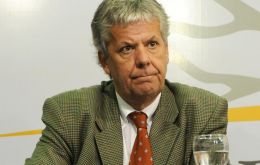
Latin American growth this year should stay under the 4% estimated previously at 3.6% since the region is susceptible to the slowing down of the world’s economy and increasing risks of the financial crisis on the Euro zone, according to the IMF World Economic Outlook released Tuesday.
-
Monday, January 16th 2012 - 03:55 UTC
Brazil prepares for primary surplus target with a start of the year spending freeze
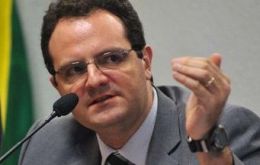
The size of an annual start-of-year spending freeze that the Brazilian government is set to announce by early February will offer hints on how far President Dilma Rousseff and her economic advisers want to cut interest rates.
